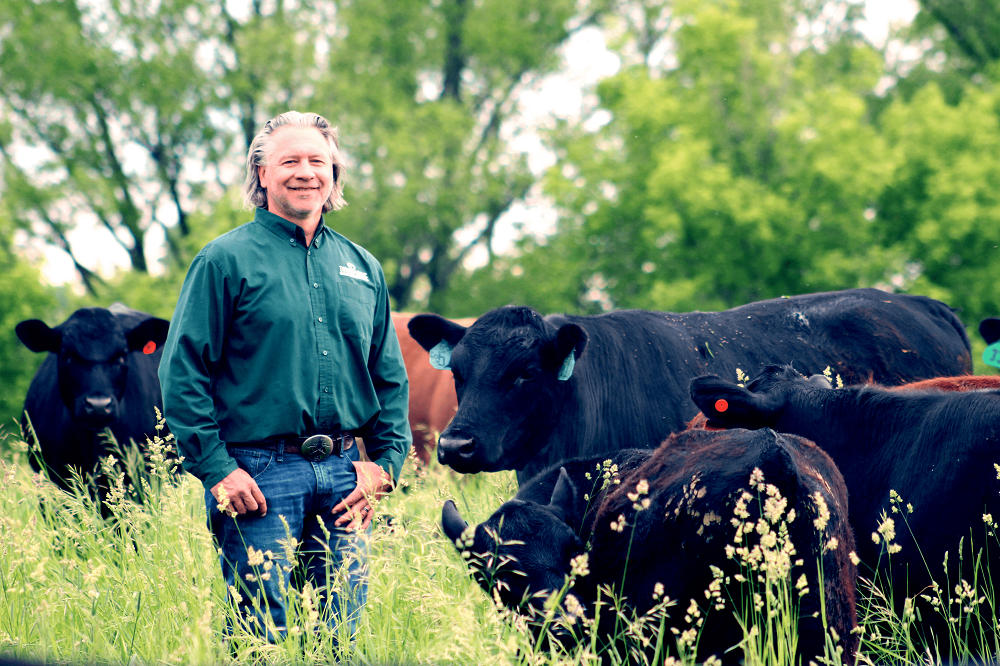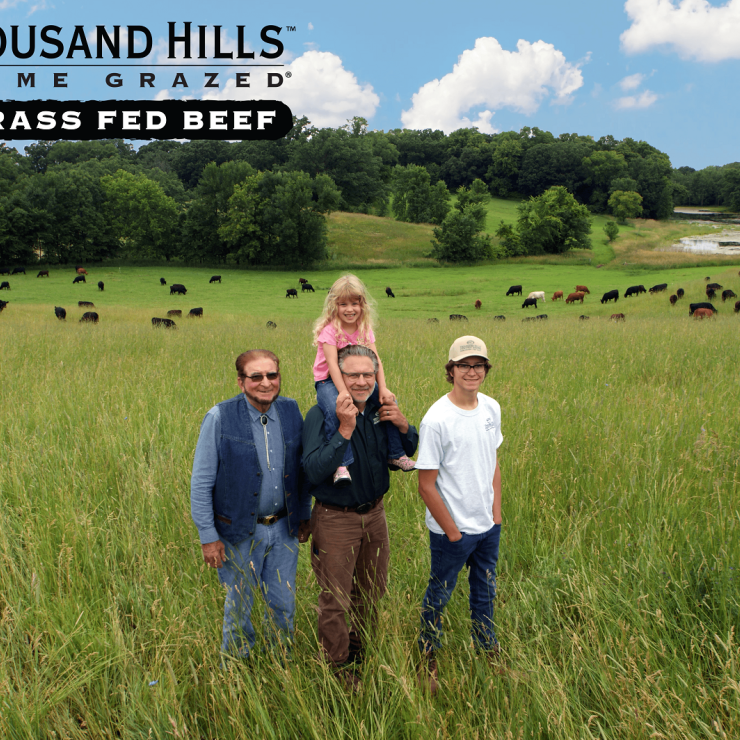
Today, we treat our lawns much the same way as we treat our fields – with chemicals and fertilizers to prevent weeds and grow a lush yard. It wasn’t always this way. Matt Maier grew up on a farm that was primarily grass-based, pesticide free and mostly no-till. His first experience with conventional practices for treating the land was a job with a lawn care company. Once, on a particularly hot day, after treating 12 yards, Matt began to feel disoriented. He was unable to remember where he was or how to get to his next destination. After this experience he started asking questions about the chemicals they were using, the proper attire to wear and the protocols to follow when handling these chemicals. Matt ended up taking matters into his own hands and starting his own organic lawn care company. After college he went on to work in marketing within the food industry. A few years later, he sold his marketing business and moved back to the family farm, focused on making a nutritionally-superior product.
How Matt got started with regenerative agriculture
After learning more about grassfed beef, regenerative agriculture and what he could do as a farmer to have the biggest impact in our food system, Matt took the money from the sale of his marketing business and became involved with Thousand Hills Lifetime Grazed. Growing up, his family farm in Clearwater, Minnesota was surrounded by many hobby farms that were multi-species and primarily grass-based, like his own. Upon his return he noticed much of the surrounding land was now rented out to users who were only extracting it for a profit and killing the land’s viability. Matt began working with his neighbors to restore their land with regenerative agriculture, through holistic farm management and by bringing animals back to the land. It wasn’t easy at first. Many were used to pristine fields of corn or soybean - animals on the land and within the fields was unheard of. But Matt found success. Today he works with 12 landowners to implement practices like managed grazing, no chemical usage, and no-till to build up organic matter and in turn reduce erosion and runoff, while increasing the land’s water infiltration capacity.
How regenerative agriculture restores the land
Matt has seen first-hand that how we manage the land impacts our watershed. Many of the land owners Matt works with started with just 1% of organic matter in their soil. After five years of regenerative practices, organic matter has increased to 5%. This increase may seem small, but that means 80,000 more gallons of water per acre can be infiltrated and held in the soil. Soil plays an important role in absorbing carbon and filtering water. Unfortunately, the world’ top soil is degrading at an alarming rate, mostly due to conventional agriculture practices. Chemical-heavy farming techniques, deforestation that fuels erosion and climate change contribute to the destruction of our soil. As Matt knows and practices, we need animal activity on the land to regenerate the soil. Farms can’t just be “sustainable”, we need to create top soil to make up for what we’ve lost - we need to regenerate.

The opportunities that exist to change the market and our food system
For Matt, the big opportunity now is consumers. More and more farmers are experiencing the benefits of regenerative agriculture but the modern food system is dominated by corporations that use practices that pollute our water and degrade our land. This produces “cheap”, but less nutritional food and contributes to the increase in disease we see today. We can change this. Consumers can vote with our dollars and demand a food system that produces healthier food and does less damage to our land and water. Consumers are already asking questions - wanting to know more about the food system, where their food comes from and how it’s made – now it’s time to find the solutions to meet those needs.
This is where the second biggest opportunity lies according to Matt, making sure retail stores begin to answer those questions and change what they sell. So few consumers and shoppers take the time to speak up, even a small handful who act could convince store managers to improve their supply chain. As consumers continue to become more aware and change their purchasing decisions, Matt takes pride in knowing Thousand Hills is already a choice consumers can feel good about.
What is coming next
Matt believes we need to continue to highlight the challenges of the food system. The United Nations FAO’s 2015 study stated if current rates of degradation continue, all of the world’s topsoil could be gone within 60 years. Meaning there are roughly 60 harvests left. That’s the state of our food system. We need to start discussing the solution, regenerative agriculture, regardless of the category – whether that’s potatoes, vegetables, pork or beef. It’s time for retail stores to set higher standards for what’s coming in their doors and being sold to their customers. For Thousand Hills Lifetime Grazed, they focus on retailers with a high set of standards in place so they too can feel good about where they sell their product.
Clean Water Action values farming practices that take care of the land and protect clean water. Thousand Hills Lifetime Grazed Cattle Company not only implements such practices - like no-till, no chemical use, managed grazing and cover crops - but teaches and assists neighboring landowners in doing the same. They encourage others to manage their land in a way that protects the environment and gives back to it, all while creating nutritionally-superior products for consumers. Companies like Thousand Hills prove that we can have a food system that supports humans and the planet, especially clean water.